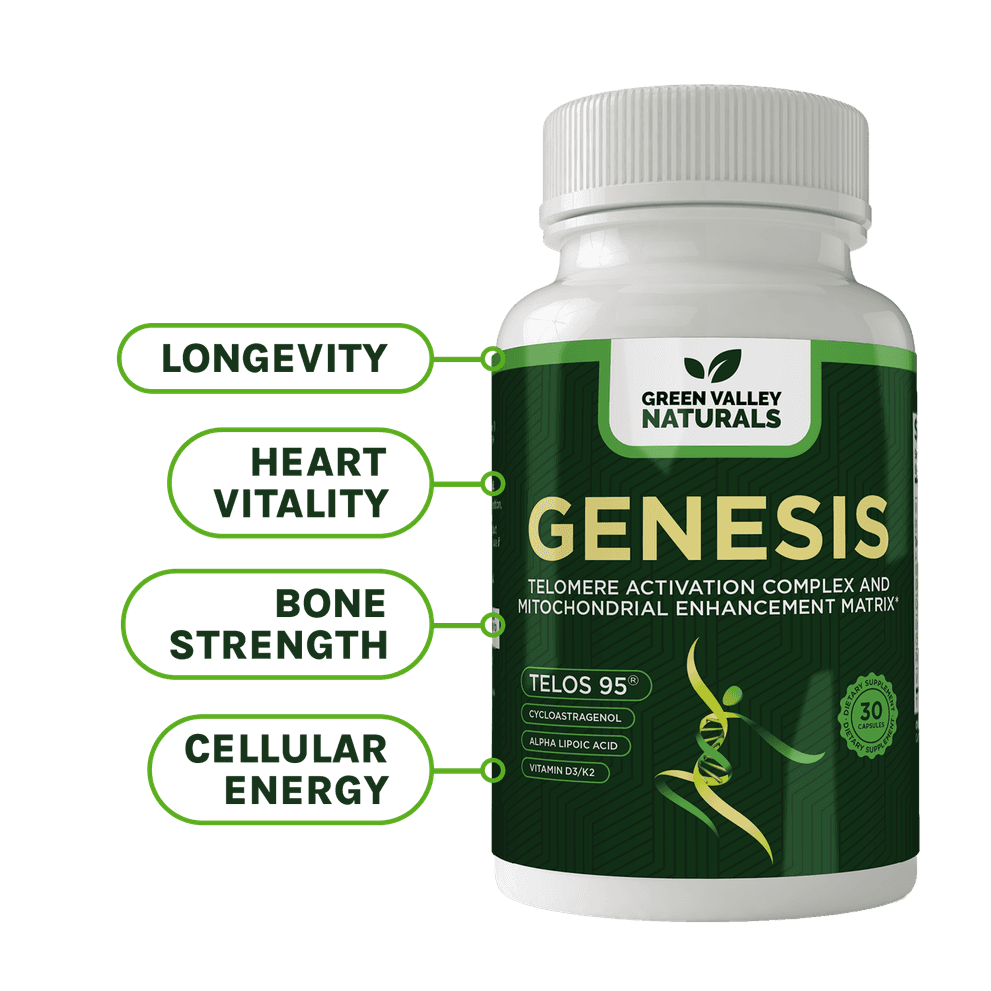
You might believe that a clean diet and a few trusted vitamins are your best defense against aging and disease—but what if the very supplements you take to stay healthy are quietly straining your liver? Alarming headlines and rising statistics warn of liver damage linked to popular health products, leaving many wondering: Is your wellness routine helping your body—or quietly hurting it? Dive into the complex truth behind supplement safety and discover which formulas are friend or foe in your pursuit of lifelong health.
Key Takeaways
- Your Diet Alone Isn’t Enough – Even a near-perfect diet may leave you short on vital nutrients like vitamin D, taurine, CoQ10, or lutein—making supplements a smart choice.
- Not All Supplements Are Created Equal – While some dietary supplements can nourish the body, others—especially those with performance enhancers or weight-loss agents—can seriously harm your liver.
- Choose Your Supplement Brand Wisely – Start with a clear health goal. Check ingredients and look for third party testing.
The Media Storm: Separating Fear from Facts
The United Network for Organ Sharing (UNOS) says that dietary supplements now cause 20% of the liver toxicity nationwide, and that this represents an 8-fold increase in dietary supplement-related liver failure leading to liver transplant.
These recent headlines screaming about supplement dangers have left many health-conscious individuals wondering if their daily vitamins are silently damaging their liver. This wave of fear-mongering, while containing grains of truth, presents a dangerously incomplete picture that benefits pharmaceutical companies more than your health.
The reality is far more nuanced. Yes, certain dietary and herbal supplements can cause liver problems—but so can prescription medications, over-the-counter pain relievers, and even excessive amounts of everyday food and drink. The key isn't avoiding all dietary supplements; it's understanding which ones to choose and how to use them safely.
Understanding Your Liver: The Body's Ultimate Multitasker
Your liver is a remarkable organ that performs over 500 essential functions, from filtering toxins and producing bile to storing vitamins and regulating blood sugar. This hardworking organ processes everything you consume, making it naturally vulnerable to damage from various sources.
What's concerning isn't that dietary supplements occasionally cause liver issues—it's that the leading causes of liver disease are largely ignored in these sensationalized reports. Non-alcoholic fatty liver disease (NAFLD), now termed metabolic dysfunction-associated steatotic liver disease (MASLD), has become the most common cause of chronic liver disease worldwide, affecting up to 25% of adults in developed countries.
This epidemic isn't caused by dietary supplements—it's driven by obesity, insulin resistance, poor diet, and sedentary lifestyles. Yet media coverage focuses disproportionately on rare supplement-related incidents in folks who are usually genetically prone to liver disease—more on that in a minute—while ignoring the metabolic disaster unfolding in our communities.
Taking Dietary Supplements and Your Liver: The Real Supplement Safety Picture
When examining supplement-related liver damage and injuries, context is everything. Recent studies suggest that approximately 20% of liver injuries in the U.S. are linked to supplement use. However, this statistic requires careful interpretation.
First, Americans consume billions of supplement doses annually. Even if every reported case were legitimate (which is debatable), we're talking about extraordinarily rare events relative to usage rates. Second, the vast majority of reported supplement-related liver injuries involve specific high-risk categories: weight-loss products and performance-enhancing supplements often used by bodybuilders or weekend warriors.
These categories are notorious for containing undisclosed stimulants, synthetic compounds, and sometimes outright pharmaceutical drugs. They represent the wild west of supplementation—products that legitimate supplement companies and health experts have warned against for years.
Which Dietary Supplements Are Risky for Your Liver?
The landmark study showing an eight-fold increase in supplement-related liver failure over 25 years tells a similar story. When researchers examined the data closely, they found that bodybuilding supplements containing anabolic androgenic steroids (AAS) accounted for 34% of cases. These are synthetic steroids, often disguised in "muscle-building" supplements, and they're toxic to liver cells. They cause cholestatic liver damage and liver injury, impair bile flow, and can lead to jaundice and inflammation.
Instead, consider a supplement such as Green Valley Naturals Bone and Muscle Defense. It slows age-related muscle loss, supports naturally building muscle, boosts energy, reduces fatigue, and supports healthy cholesterol. And it doesn't need steroids to do so.
Research suggests that other risky dietary supplements include Garcinia cambogia and usnic acid often used in weight-loss and fat-burning supplements.
The Turmeric Controversy: A Case Study in Context
Recent media attention has focused on turmeric supplements and liver safety, stemming from a 2023 Drug-Induced Liver Injury Network (DILIN) study that identified 10 cases of turmeric-associated liver injury in the United States.
This study deserves careful examination because it illustrates how rare genetic susceptibility can create problems that don't apply to the general population. The researchers found that liver damage and injury was linked to a specific genetic variant (HLA-B*35:01) and typically involved whole turmeric supplements combined with black pepper extract (piperine) at high doses.
This distinction between whole turmeric with piperine and standardized curcumin extracts is essential. Curcumin, the active compound in turmeric, has some 30,000 studies showing significant health benefits, when found in formulations that exclude black pepper (piperine).
Crucially, the study noted that "trials of turmeric in humans have not shown toxic effects, and curcumin is reported to be safe orally at the dose of 6 grams per day for 4 to 7 weeks." To put that into perspective, six grams is more than 200 times a standard dose! 4
The best curcumin complex is Curcumin C3 Complex, the foremost clinically-studied natural anti-inflammatory and antioxidant available. It represents the gold standard for curcumin. That's why Green Valley Naturals uses Curcumin C3 Complex in its Triple Joint Relief supplement to fight inflammation for healthy joints.
Dangerous Drugs: The Pharmaceutical Double Standard
The supplement safety narrative becomes particularly questionable when compared to prescription drugs. Prescription drugs and certain medications cause hundreds of thousands of adverse events annually, including liver damage. Acetaminophen alone causes more cases of acute liver failure than all dietary supplements combined.
That's right, acetaminophen is the #1 cause of drug induced liver injury and acute liver failure in the world. 3 Interestingly, drug administration of the powerful nutrient N-acetylcysteine (NAC) is the go-to Emergency Room therapy for acetaminophen toxicity, and is nearly 100% effective if administered within eight hours. 4
The Real Liver Threat: Metabolic Dysfunction
While media attention focuses on rare supplement-related liver injuries, the elephant in the room is NAFLD/MASLD, now affecting one in four adults worldwide. This condition, directly linked to obesity, insulin resistance, and metabolic syndrome, represents the true liver health crisis of our time.
NAFLD often progresses silently, eventually leading to serious liver damage such as cirrhosis, liver failure, and liver cancer. Unlike rare dietary supplement reactions, this is an epidemic-level problem driven by lifestyle factors completely unrelated to supplement use.
The irony is profound: people worry about liver toxicity and liver damage from dietary supplements while consuming processed foods, excess sugar, and refined carbohydrates that directly contribute to fatty liver disease. The focus should be on supporting metabolic health through nutrition, exercise, and yes—appropriate supplementation.
There are a wide variety of dietary supplements that can improve liver health, in addition to improving insulin resistance, which is often implicated with MASLD and NAFLD.
Supporting Liver Health Naturally
Rather than avoiding all dietary supplements due to overblown fears, focus on supporting liver health through evidence-based dietary ingredients such as:
- Milk thistle extract (silymarin) provides direct liver protection through antioxidant and anti-inflammatory mechanisms. A 2025 study found silymarin improved liver enzyme levels in people with NAFLD. Interestingly, silymarin's positive effects were especially pronounced in those who were younger than 50, and had a BMI of below 30. This study is especially relevant as NAFLD becomes a leading cause of chronic liver disease worldwide.
- Curcumin offers powerful anti-inflammatory benefits that may help prevent liver damage from various causes. Choose standardized extracts from reputable sources.
- N-acetylcysteine (NAC) supports glutathione production, the liver's primary antioxidant system. It's used in hospitals to treat acetaminophen overdose.
- B-complex vitamins support liver detoxification pathways and energy metabolism. Deficiencies are common and can impair liver function.
- Omega-3 fatty acids help reduce liver inflammation and may improve fatty liver disease outcomes.
Dietary supplements like these are critical not only to the health of your liver, but also to your body's ability to fight aging and maintain sharp, clear thinking, a strong-pumping heart, easy digestion, and vibrant energy. Because believe it or not, a healthy diet is no longer enough to defend against aging.

The Nutrient Depletion Crisis
Modern discussions about supplement safety often ignore a fundamental reality: our food supply provides fewer nutrients than it did generations ago. Soil depletion, industrial farming practices, food processing, and long transport times have significantly reduced the nutritional density of our foods.
Simultaneously, our nutrient needs have increased due to environmental toxins, chronic stress, and longer lifespans. This creates a gap that even the most perfect diet struggles to fill.
Consider vitamin D, often criticized in supplement safety discussions. Despite concerns about high-dose toxicity, widespread vitamin D deficiency represents a far greater public health threat than rare cases of supplement-related vitamin D toxicity. The same principle applies to many other vitamins and essential nutrients.
Getting Older: When Supplements Become Even More Important
As we age, our bodies become less efficient at absorbing and utilizing nutrients from food. Digestive function declines, medication interactions increase, and chronic conditions can impair nutrient absorption.
Older adults are at higher risk for multiple nutrient deficiencies, including B vitamins, vitamin D, magnesium, and omega-3 fatty acids. These deficiencies contribute to cognitive decline, bone loss, immune dysfunction, and cardiovascular disease.
Are You Missing These Nutrients?
Here are just a few examples of nutrients often missing in our foods:
- Vitamin D: Leading alternative doctors point to the average person needing 2,000 to 8,000 IUs per day of vitamin D. However, one of the highest dietary sources is sockeye salmon at just 570 IU of vitamin D per 3-oz. serving. 2 Think how many servings of salmon you'd need to eat per day to reach these levels!
- CoQ10: A clinical study of CoQ10 shows healthy people should get 100 to 150 mg per day for improved energy, and that even higher doses improve heart failure symptoms. 8 To get 113 mg of regular CoQ10 in the diet, you'd need to eat 2.2 pounds of beef heart daily, or about 4.4 pounds of beef liver. 9 Do you know anyone who does that in real life?
- Lutein and zeaxanthin: These antioxidants help reduce the risk of macular degeneration and maintain sharp, focused eyesight. Average lutein intake is 1-2 mg per day, and average zeaxanthin intake is 1 to 3 mg. Yet a meta-analysis of 46 studies showed that you need levels of 5 to 20 mg to improve macular health. 9
- Taurine: Studies show that taurine, a low-cost amino acid, reduces body fat, increases bone mass, and improves lifespan. Lower taurine levels are linked with age-related problems. Studies show that older folks need 3,000 to 5,000 mg per day to restore youthful levels, yet the average diet only supplies 100 to 180 mg per day (from eggs, meat, dairy, and seafood). Vegetarians and vegans average a mere 17 mg per day. You cannot safely get high doses of taurine from dietary sources alone. 10, 11
For most people, avoiding dietary supplements based on overblown safety concerns could accelerate health decline and most certainly sap your energy and well-being. The goal should be identifying high-quality products and using them under appropriate guidance.
Quality Matters: The Supplement Safety Spectrum
Remember, not all dietary supplements are created equal. The supplement industry exists on a spectrum from pharmaceutical-grade products manufactured under strict quality controls to questionable products made in facilities outside the U.S. with minimal oversight.
Reputable supplement companies like Green Valley Naturals follow Good Manufacturing Practices (GMP), conduct third-party testing for purity and potency, and provide transparent labeling. They use clinically studied ingredients at dosages documented in research and avoid the kitchen-sink approach of throwing dozens of compounds together.
At the other end of the spectrum are products sold primarily through questionable online retailers, featuring undisclosed amounts of untested and unverified ingredients that can be contaminated with unlisted substances.
The difference in safety profiles between these categories is dramatic. In fact, high-quality supplements from established companies have safety records that rival or exceed many over-the-counter medications.
Evidence-Based Supplement Selection
Here's how to optimize your health through supplementation while minimizing your risks.
- Choose Reputable Supplement Manufacturers: Look for companies with GMP certification, third-party testing, and transparent labeling. Avoid products making exaggerated claims or sold exclusively through questionable channels.
- Start with Basics: Focus on supplement ingredients with strong safety profiles and clear deficiency risks. These include dietary ingredients such as vitamin D, B vitamins, magnesium, omega-3 fatty acids, and antioxidants like curcumin.
- Avoid High-Risk Categories: Steer clear of weight-loss supplements, bodybuilding products, and "detox" formulas. These categories account for the majority of supplement-related adverse events.
- Monitor and Adjust: Work with healthcare providers who understand nutrition. Regular monitoring can catch potential issues early and ensure optimal dosing.
When high-quality dietary supplements are used appropriately under professional guidance, their safety profiles often exceed those of prescription alternatives.
The Bottom Line: Smart Supplementation Helps You Look and Feel Better
The current supplement safety debate misses the forest for the trees. While acknowledging that poor-quality products and inappropriate usage can cause problems, the evidence overwhelmingly supports the safety and necessity of high-quality supplementation for optimal health and healthy aging.
The real threats to liver health—metabolic dysfunction, obesity, excessive alcohol consumption, and environmental toxins—receive insufficient attention while rare supplement reactions dominate headlines. This misplaced focus potentially deprives people of nutrients essential for health and longevity.
Rather than avoiding dietary supplements entirely, focus on quality, appropriate dosing, and professional guidance. The goal isn't zero risk—it's optimal health outcomes based on the best available evidence.
Your liver is designed to handle natural compounds that support its function. What it struggles with is the modern assault of processed foods, environmental toxins, and metabolic dysfunction. High-quality supplements can be powerful allies in supporting liver health and overall wellness throughout the aging process.
The choice isn't between taking dietary supplements and safety—it's between informed, evidence-based supplementation and nutritional deficiency in an increasingly toxic world. Choose wisely, choose quality, and don't let fear-based marketing deprive you of the nutrients your body needs to remain strong and healthy.
Summary
While some herbal and dietary supplements have been linked to liver injury—especially weight-loss aids and anabolic compounds—the vast majority of quality supplements are safe when used properly. In fact, they may be essential for filling nutritional gaps that diet alone can’t meet, particularly as we age. The real threat to liver health lies not in a vitamin bottle but in poor diet, metabolic dysfunction, and misleading media narratives. With smart choices, third-party-tested products, and professional guidance, supplements can be safe, effective allies in lifelong health.
Frequently Asked Questions
What supplements are good for my liver?
Several supplements can contribute to a healthy liver, and help reduce liver inflammation and enzymes. These include milk thistle (silymarin), NAC, glutathione, and taurine. Studies show that certain strains of probiotics including resistant starch and those found in Green Valley's Comfort Pro premium probiotic formula can also help.
Can supplements really cause liver damage?
Yes. Some dietary and herbal supplements have been linked to severe cases of liver injury, including inflammation, toxicity, and even acute liver failure resulting in the need for an emergency liver transplant. Approximately 20% of liver injuries in the U.S. are related to supplement use, mostly associated with body building and weight loss supplements.
Which supplements are most commonly associated with liver problems?
Supplements that pose higher risks include herbal supplements such as green tea or green tea extract, bodybuilding supplements with anabolic steroids (synthetic steroids), high-dose vitamin D, red yeast rice, and multi-ingredient “detox” or weight-loss products.
How can I tell if a supplement is safe for my liver?
Look for supplements from reputable manufacturers who follow Good Manufacturing Practices (GMP), avoid those with multiple or undisclosed ingredients, and always consult your healthcare provider before starting any new supplement.
What should I do if I suspect a supplement is affecting my liver?
Stop taking the supplement immediately and contact a healthcare professional. Symptoms of liver conditions may include fatigue, jaundice (yellowing of skin or eyes), dark urine, and abdominal pain. Always report adverse effects to your doctor or the FDA’s MedWatch program.
2 https://ods.od.nih.gov/factsheets/VitaminD-HealthProfessional/
3 National Institutes of Health. https://pubmed.ncbi.nlm.nih.gov/29605069/
4 Velussi et al., Journal of Hepatology, 1997: Silymarin and Insulin Resistance in Liver Cirrhosis
5 Ferenci et al., 1989: Legalon (Silymarin) in Cirrhosis -- Randomized Controlled Trial
6 Meta-analyses and Systematic Reviews (e.g., Gillessen & Schmidt, Advances in Therapy, 2020).
7 Saller et al., 2007: Review of Clinical Trials Evaluating Safety and Efficacy of Milk Thistle.
9 The Food and Vitamin Controversy. Life Extension Magazine. February 2025.


